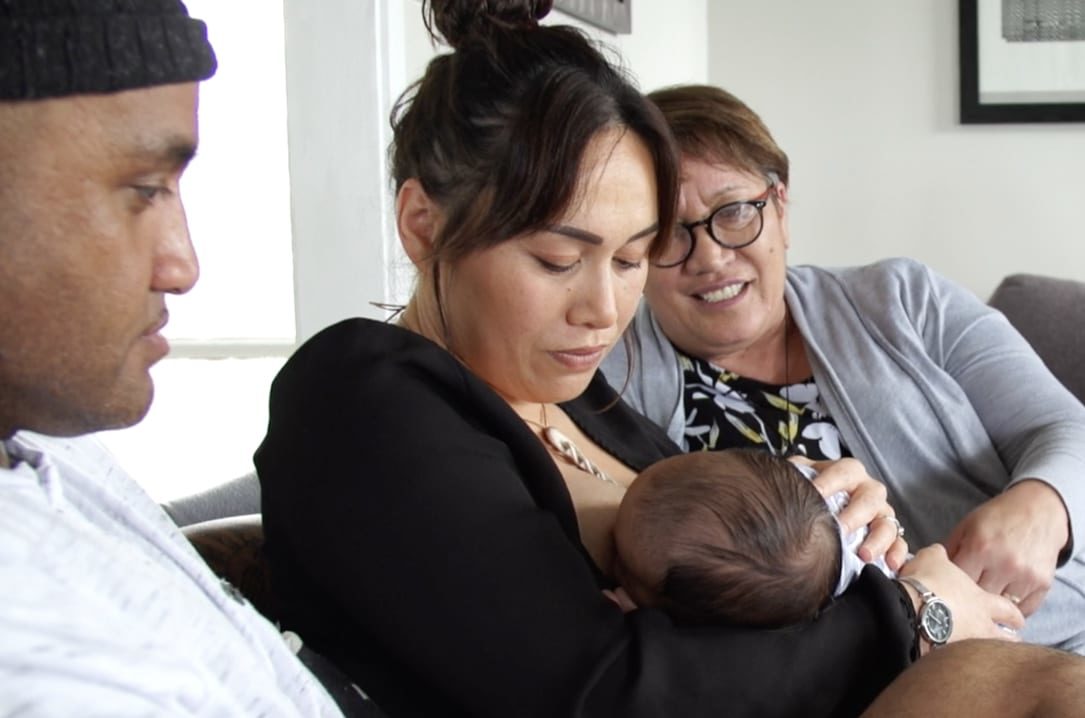As well as providing care during pregnancy, midwives also visit in the home for up to six weeks after the baby is born. During these visits breastfeeding and infant feeding support are part of the postnatal care service provided.
Breastfeeding is recommended as the optimal feeding method for babies from birth and provides a perfect food for babies as it contains all the nutrition a baby needs for the first six months of life, plus lots of antibodies that protect babies from a range of different infections. Click here for more information on breastfeeding
Here is a link to a video that explores the challenges and joys of breastfeeding in relation to the Māori creation story
Ūkaipō – connection through breastfeeding
If babies are not breastfed or breast milk fed, then infant formula feeding is the only recommended substitute. Some parents do mix breastfeeding with formula feeding for varied reasons.
Whether breastfeeding or bottle-feeding, responding to baby cues for feeding is considered to be beneficial. Responsive feeding is described as recognising the baby’s need for more than food during a feed – the need for closeness, love, comfort and reassurance.
Although midwifery care finishes by six weeks after birth, knowing when to start the introduction of solid foods is useful for parents. The optimal feeding recommendations are for babies to be introduced to appropriate foods at six months of age, as well as continuing with breastfeeding or infant formula feeding. At one year of age babies fed on formula can change to cow’s milk (Follow-on formula and toddler milks are not necessary or recommended) but it is recommended that breastfeeding continues for at least one year and beyond.
